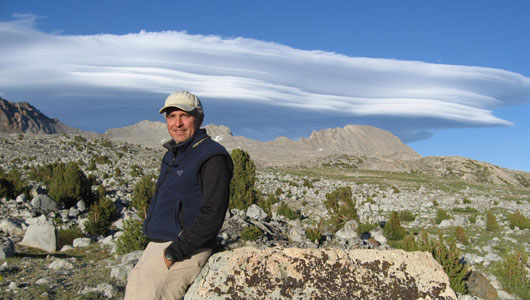
Headline |
UCLA’s Dr. Thomas Smith trains students to tackle Earth-changing issues
As a Department of Ecology and Evolutionary Biology professor and founder and director of the Institute of the Environment and Sustainability’s Center For Tropical Research at UCLA, Dr. Thomas Smith teaches classes in ornithology and seminars on conservation and biodiversity. He spends the rest of his time in the field, traveling to tropical regions to supervise a variety of research projects relating to many aspects of environmental impact, climate change in particular.
Smith founded the center 15 years ago “to bring better science to conservation decision-making. We have about 48 affiliated faculty, over 100 research fellows in countries around the world and we use this network to implement new research projects and projects aimed at conservation,” says Smith. “For the last 30 years I’ve been working in Central Africa, but we also have ongoing projects in South America, Central America and North America,” the latter involving “genetic and molecular markers to link breeding populations. A lot of them involve what we’re going to do in the face of climate change. The data suggests that many populations are already declining, some quite severely. How do we mitigate that? At the center, we’re trying to identify areas that protect adaptive variation in populations. We’ve been developing tools like mapping techniques so we can map variation onto the landscape.”
Mapping techniques incorporating satellite data and remote sensing have also been used to predict where infectious diseases like influenza, West Nile virus, and monkey pox are likely to break out, “to understand where the next outbreak might happen and what host is going to be carrying this disease,” says Smith, noting that incidence of monkey pox, which is transmittable from animals to humans, has increased and there’s concern that human-to-human transmission could lead to a major pandemic, similar to what happened in the movie “Contagion.” Center researchers have zeroed in on the rope squirrel as a monkey pox carrier, and further tests may prove vital in prevention. “It’s very important in the context of climate change because many of these diseases are going to change in their distribution and we want to be able to anticipate that,” Smith explains.
Other issues the center is working on involve finding solutions to species decline due to deforestation and fragmentation of habitats and the bush meat trade, and developing reduced emissions from deforestation (RED) projects that encourage people to earn money from the sale of carbon credits rather than chopping down forests and selling logs.
